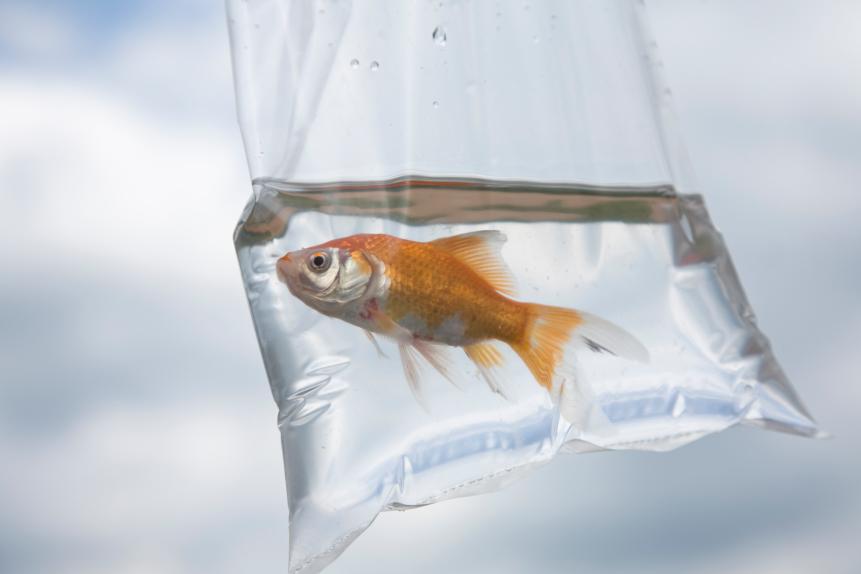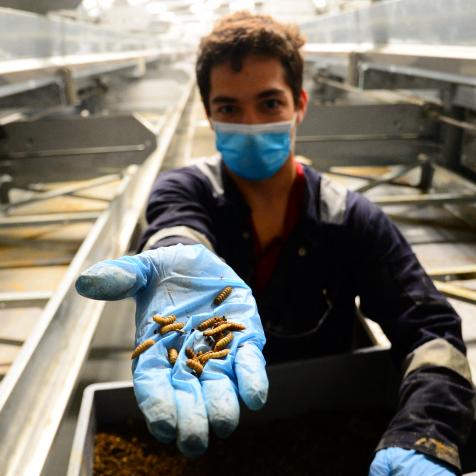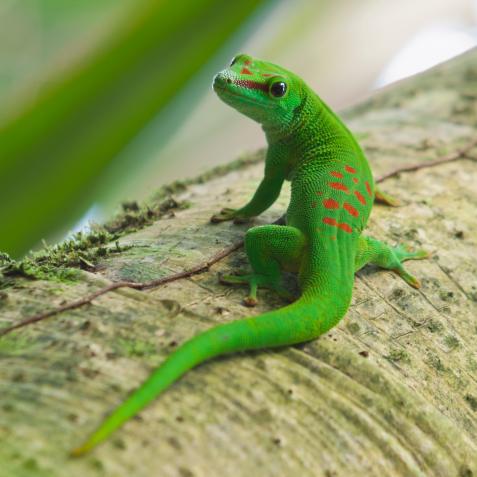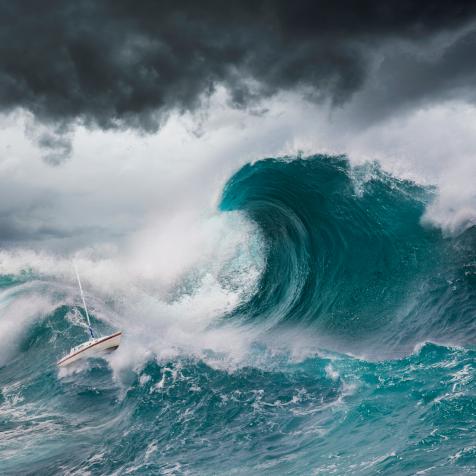
GK Hart/Vikki Hart
Can You Teach a Goldfish to Drive?
A new experiment suggests these household fish actually make good drivers.
While it may seem like fish will drive cars when pigs fly, in a new experiment scientists put goldfish’s sense of direction to the test.
Scientists at Ben-Gurion University in Israel taught several goldfish to drive a robotic “car”–essentially the opposite of a submarine, a tank of water on wheels–around a room. Teaching goldfish to navigate such unfamiliar terrain may seem like a fish-out-of-water idea, but they took to it like naturals.
The motorized fish tank was equipped with a camera to track the fish’s position. When the goldfish swam towards one of the walls, the fishmobile drove in that direction.
The researchers trained the fish over a dozen 30-minute sessions to drive to the center of a small room towards a pink board by giving the fish a treat whenever it arrived at its destination. In the first session, the goldfish averaged between 2-3 successful trips. By the end of the experiment, the fish were averaging between 17-18 successful trips per session.
As with humans, some of the fish took their driver’s ed quicker than others– taking faster and more direct paths to their target.
Throughout the experiment, researchers changed up the starting position of the fishmobiles. Even in different locations, the goldfish were still able to reach the pink board. This finding ruled out the possibility that the fish were just memorizing the pattern of movements to get to their reward. These marine animals were actually planning new routes to get to their destination.

dageldog
From fish out of water to accomplished motorists.
“That was pretty conclusive that the fish actually navigate,” said Ohad Ben-Shahar, coauthor of the study. The animals’ sense of direction and orientation isn’t limited to the water.
After a successful bout of driving school, the team let one of the goldfish take a joyride throughout the entire building. “And it actually started to explore. It went down one of the corridors and started to sneak away,” said Ben-Shahar.
Maybe next they’ll teach a fish how to ride a bicycle.












































































